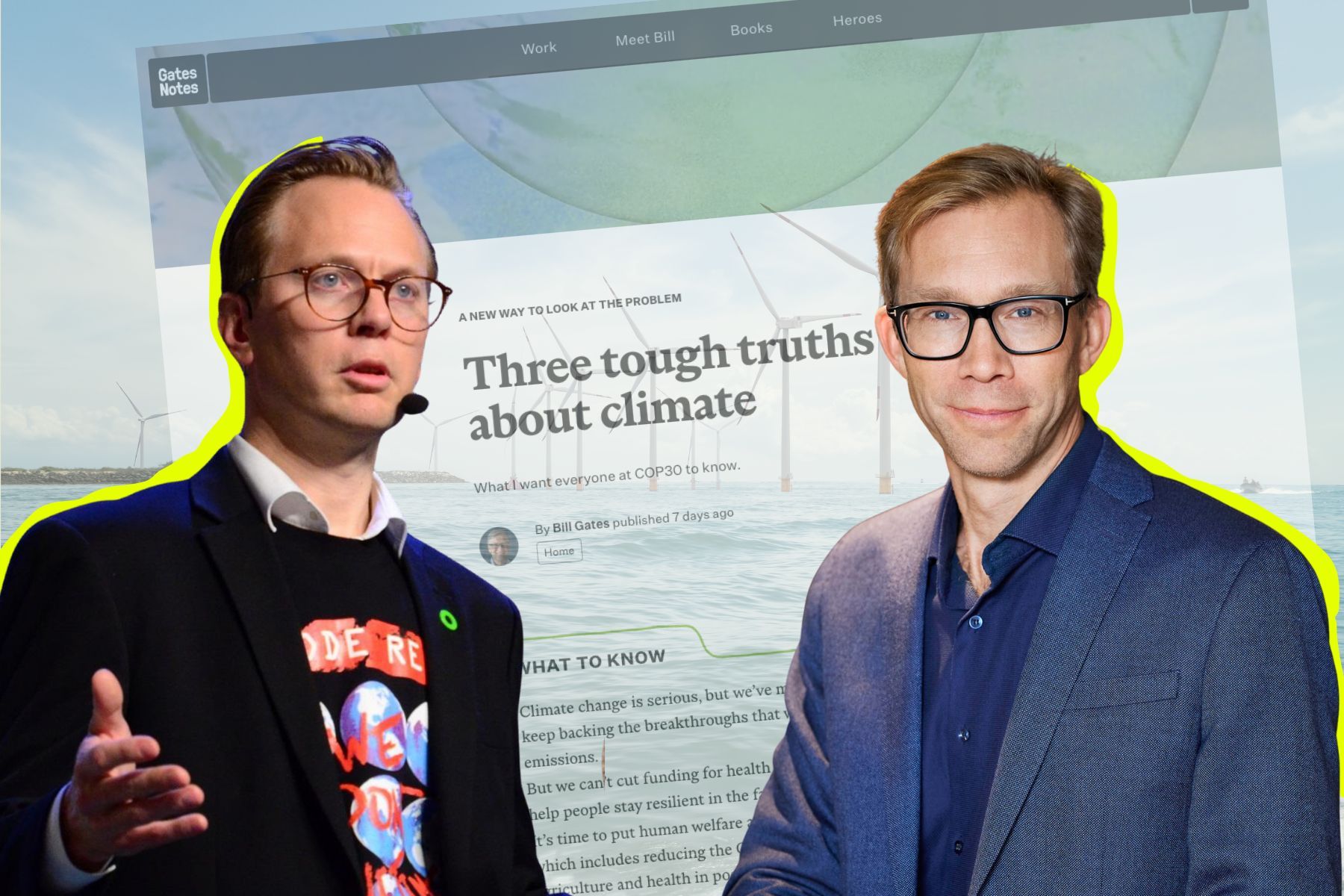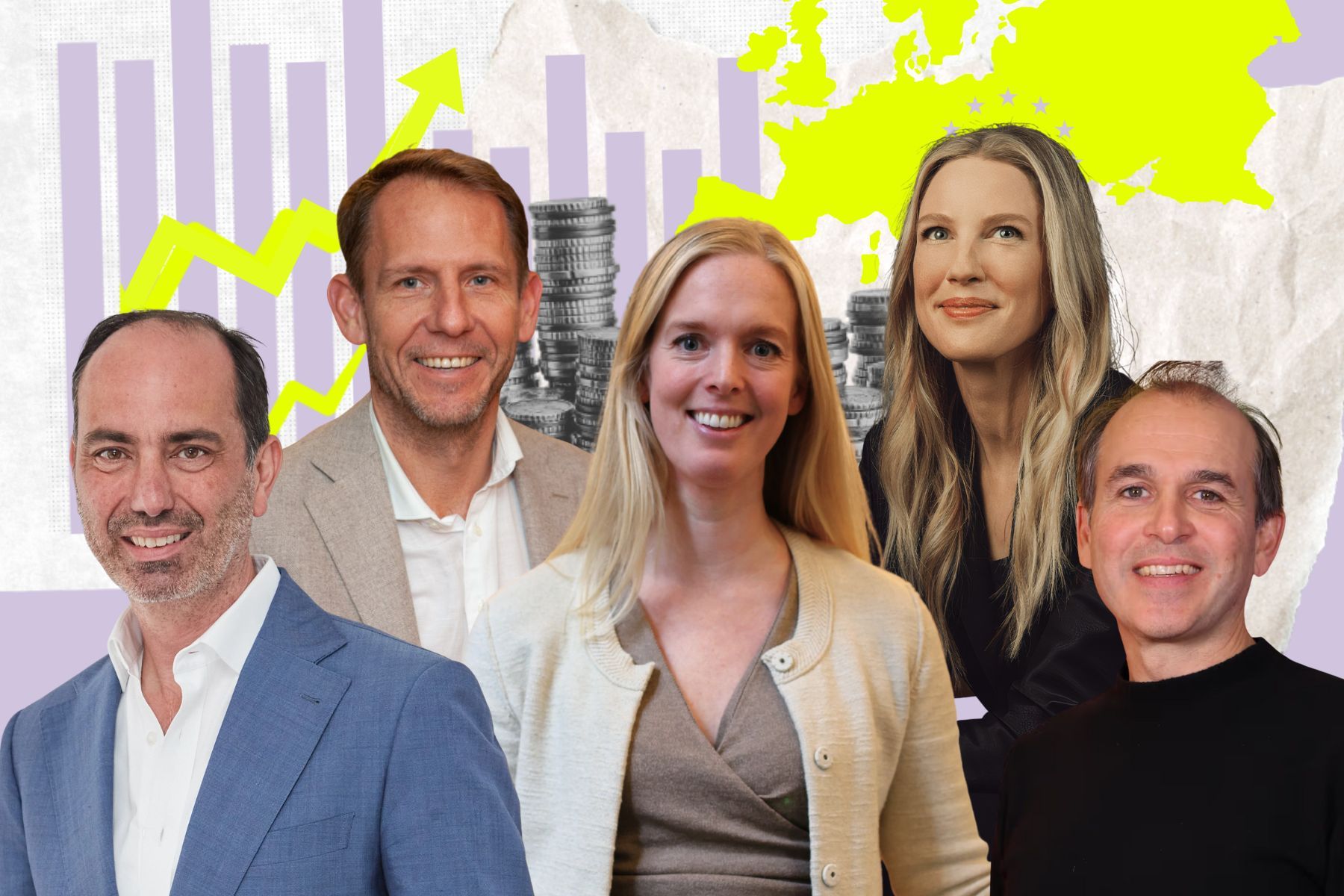Bill Gates's climate memo draws outrage, applause, and everything in between: 'He wants to be off Trump’s shitlist'
Bill Gates’s climate memo has divided the impact world – is he being pragmatic or backpedalling? Or maybe it's more complex? <br><br>We spoke to some experts to get a clearer picture.


Bill Gates’s memo “Three Hard Truths About Climate” published last week has sparked widespread debate as nations prepare for the COP30 summit in Brazil.
In the opening, Gates writes that climate change will not lead to humanity’s extinction, but admits it will have severe consequences, particularly for people in the poorest countries.
He argues that what he calls the “doomsday narrative” has caused the climate sector to focus too much on short-term emissions, diverting resources from truly effective solutions.
“Are the funds allocated for climate being spent on the right things? I believe the answer is no,” Gates writes.
The letter has drawn mixed reactions. For some, it’s a pragmatic take on the climate issue. For others, it signals that the Microsoft mogul is backtracking on his climate commitments to protect his own investments.
The response
Gates appears to have anticipated his letter would cause a stir.
“If you think climate is not important, you won't agree with the memo. If you think climate is the only cause and apocalyptic, you won't agree with the memo,” Gates told reporters in a press briefing before publication.
Things didn't exactly play out that way though.
Former US President Donald Trump – who definitely doesn't think climate is important – quickly declared himself the victor in what he calls the “war on the climate hoax”, claiming Gates had finally “admitted he was wrong”.
Others, meanwhile, accused Gates of downplaying the climate crisis.
Climate activist Clover Hogan wrote critically on LinkedIn that Gates is “yet another billionaire minimising the impact of climate change.”
Downplaying the threat
Ingmar Rentzhog, founder of We Don’t Have Time and a prominent climate advocate, is among Gates’ critics.
“Bill Gates just said that climate change is no longer a priority! He’s right about one thing – the world is losing focus,” he wrote on LinkedIn.
Speaking to Impact Loop, Rentzhog expanded on his thoughts. He believes that such a message, especially coming from Gates, risks serious consequences.
“The last thing we need right now is to shift focus away from the fact that the climate crisis is alarming and urgent. It’s not only false to claim otherwise – it’s outright harmful when someone who has previously used their platform to stress the urgency now says it’s no longer the case.”
He warns that Gates’ change in tone could undermine both public and political engagement on climate issues.
A political balancing act
Rentzhog believes Gates’ motives are political. In a world where American geopolitics polarises the climate issue, Gates is, in his view, trying to protect his philanthropic projects aimed at poorer countries.
“He doesn’t want to end up on Donald Trump’s shitlist. That would mean his other initiatives – even those unrelated to climate – could be at risk.”
Still, Rentzhog thinks it’s a dangerous game. While he agrees with Gates on certain points, such as the need for climate solutions without a green premium, he argues that the billionaire is playing down the risks.
“From his perspective, the climate crisis isn’t an existential threat to humanity. For a billionaire in the rich world, maybe it isn’t. But for people in countries that could disappear beneath rising seas, the threat is already real.”
Scrapping the green premium
Impact investor Stefan Krook also agrees with Gates on the goal of eliminating the green premium.
He argues that the way forward is to properly price the use of natural resources, ensuring environmental impact and resource depletion are reflected in the economy.
“The market has failed to set the right price for nature, virgin materials, or emissions. This is the biggest market failure in human history,” he says.
“I agree with Gates that policymakers, innovators, investors, and entrepreneurs must all use their tools and methods to drive premiums to zero so we can do what we know is right.”
Krook also believes Gates’ essay is about broadening the conversation – seeing the climate crisis as part of a wider set of global challenges.
“I think what he’s really saying is that the world faces other problems too. Yes, it’s a crisis – but not the only one.”
He points to research from the Stockholm Resilience Centre, championed by renowned climate scientist Johan Rockström, which identifies nine planetary boundaries, of which climate is only one.
“My guess is that many people haven’t actually read the whole essay – they’ve just reacted to the tweet version,” Krook tells Impact Loop.
Get full access to Europe's new platform for impact news
- Quality journalism, interviews, investor profiles and deep-dives
- Daily newsletter with top stories, latest funding rounds and roundup to keep you in the loop
Keep reading – get in the loop!
- Håll dig i loopen med vårt dagliga nyhetsbrev (gratis!)
- Full tillgång till daglig kvalitetsjournalistik med allt du behöver veta inom impact
- Affärsnätverk för entreprenörer och investerare med månatliga meetups
Fortsätt läsa – kom in i loopen!
- Håll dig i loopen med vårt dagliga nyhetsbrev (gratis)!
- Full tillgång till daglig kvalitetsjournalistik med allt du behöver veta inom impact
- Affärsnätverk för entreprenörer och investerare med månatliga meetups









